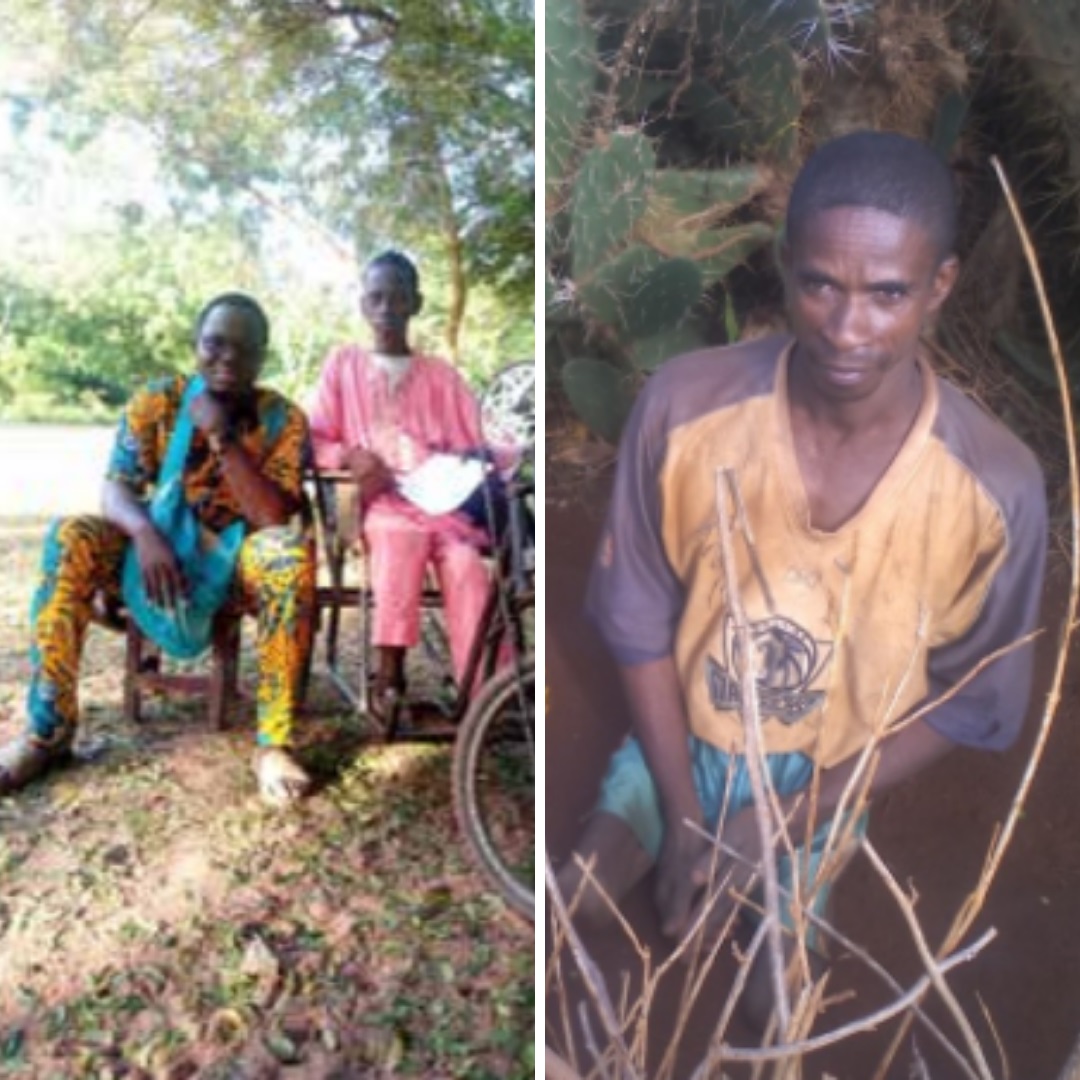Locally Led
 Rajao (right) and his wife, Rasoa (left), pose in front of their latrine. Rajao takes great pride in his family's role as a model household in the village of Ambalandapa in Madagascar. "It's a joy for my family to help other households become role models," he said. "Our goal is now to eradicate fecal-oral transmission in our community."
Rajao (right) and his wife, Rasoa (left), pose in front of their latrine. Rajao takes great pride in his family's role as a model household in the village of Ambalandapa in Madagascar. "It's a joy for my family to help other households become role models," he said. "Our goal is now to eradicate fecal-oral transmission in our community."
Natural leaders spontaneously emerge from CLTS processes as early adopters, influencers, and advocates for new attitudes and practices related to improved sanitation and hygiene. These leaders help initiate, sustain, and spread community-level change by supporting fellow community members to ensure that everyone can access and use adequate sanitation and hygiene.
In its sanitation and hygiene programs in Madagascar and Benin, MCD Global Health focuses on changing behaviors and creating demand for improved sanitation and hygiene to sustainably eliminate open defecation and adopt hygiene practices to disrupt the transmission of water-related disease. This would ultimately improve people's health and well-being. Our teams accomplish this by:
- Adapting community-led total sanitation (CLTS) to create a movement, at all levels, to improve sanitation and hygiene while developing and using more than 65 CLTS approaches and tools.
- Promoting local innovations for improving sanitation and hygiene facilities.
- Promoting social and behavior change through mass media as well as in-person community-level activities.
- Implementing water, sanitation, and hygiene (WASH) in schools and health facilities.
- Scaling up menstrual hygiene management and hand-washing.
Community-Led Total Sanitation
Starting with an inclusive, participatory, community-wide ‘triggering' exercise, MCD Global Health uses CLTS, which works by creating an emotional reaction of shock and disgust within community members. This disgust motivates the entire community to end open defecation and remove feces from the environment; thus, interrupting the transmission of fecal-oral disease and improving the community's overall health and well-being.
Revolutionizing CLTS
The CLTS approach has been used in more than 60 countries and is frequently part of national policy. Classic CLTS is often effective in the short term, but communities may struggle to sustain improved sanitation practices and open defecation free (ODF) status without continued support.
To improve sustainability, MCD has revolutionized CLTS approaches and tools and pioneered the concept of continuum CLTS, an innovative, holistic, systematic, and adaptive CLTS aimed at preventing communities from slipping back to open defecation. Continuum CLTS aims at more than the simple achievement of ODF status; it encompasses the entire sanitation and hygiene service chain from promotion and demand creation, to creating a community-based movement to ensure sustainability, to institutional demand creation and strengthening.
MCD has found that using continuum CLTS has resulted in more than 92% of ODF villages maintaining their ODF status for a year or more.
Leveraging Community-Led Total Sanitation for COVID-19
Restrictive measures in response to the COVID-19 pandemic presented new challenges for the Fonds d'Appui pour l'Assainissement (FAA) program, funded by the Water Supply and Sanitation Collaborative Council's Global Sanitation Fund (WSSCC/GSF). Driven by the spread of COVID-19 in Madagascar, MCD and its implementing partners quickly adapted their approach. While reinforcing the government's public health measures and messages, they leveraged communities' additional interest in hand-washing to prevent COVID-19 as an entry point for other program activities.
MCD and its partners used the program's extensive networks of more than 100,000 trusted local leaders in 21 regions in Madagascar to distribute hygiene kits (supplied by UNICEF) and promotional materials. They also actively promoted anti-COVID measures, such as hand-washing, mask-wearing, and other measures through media campaigns and community events as well as disinfected latrines and other public places.





